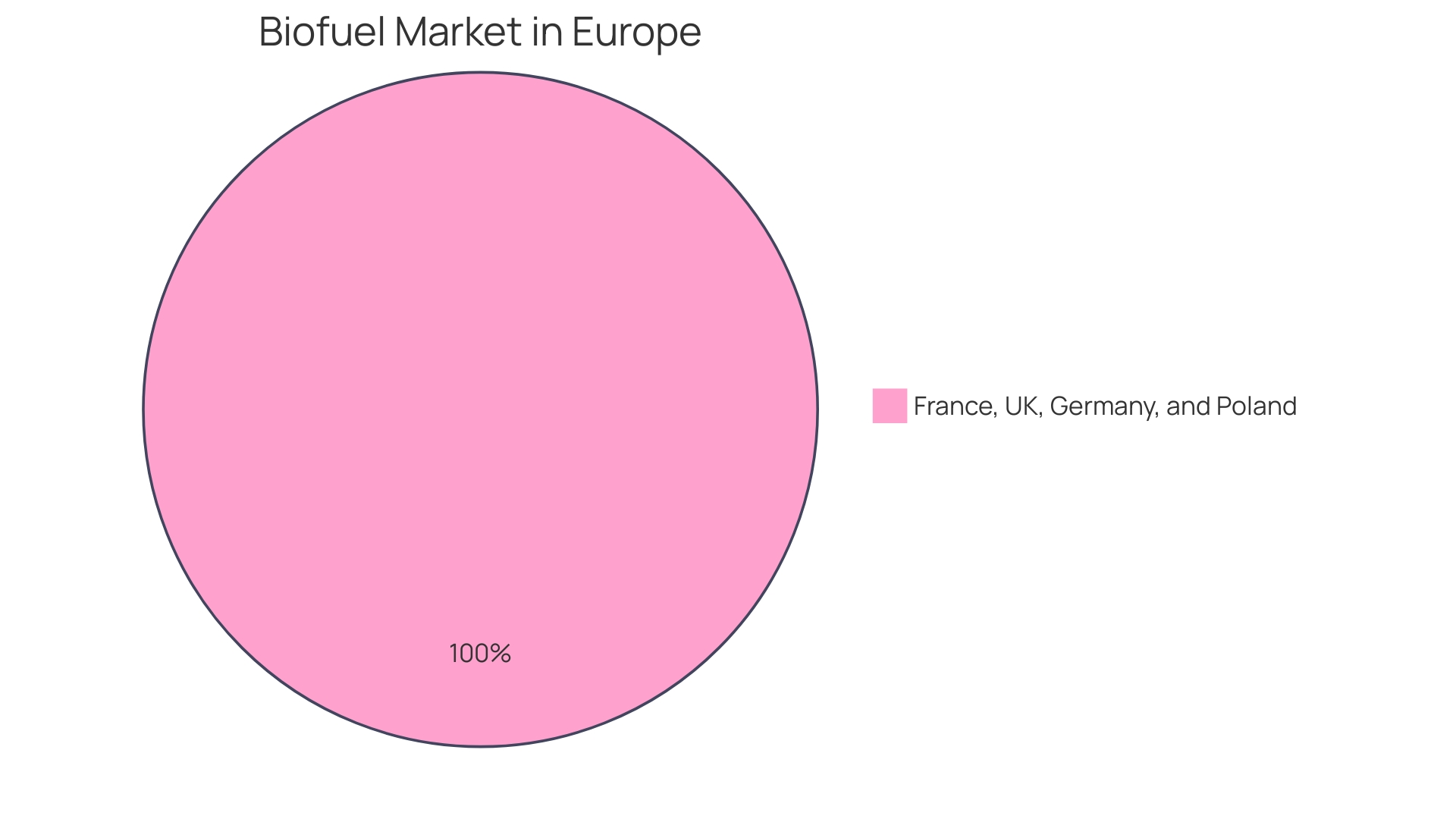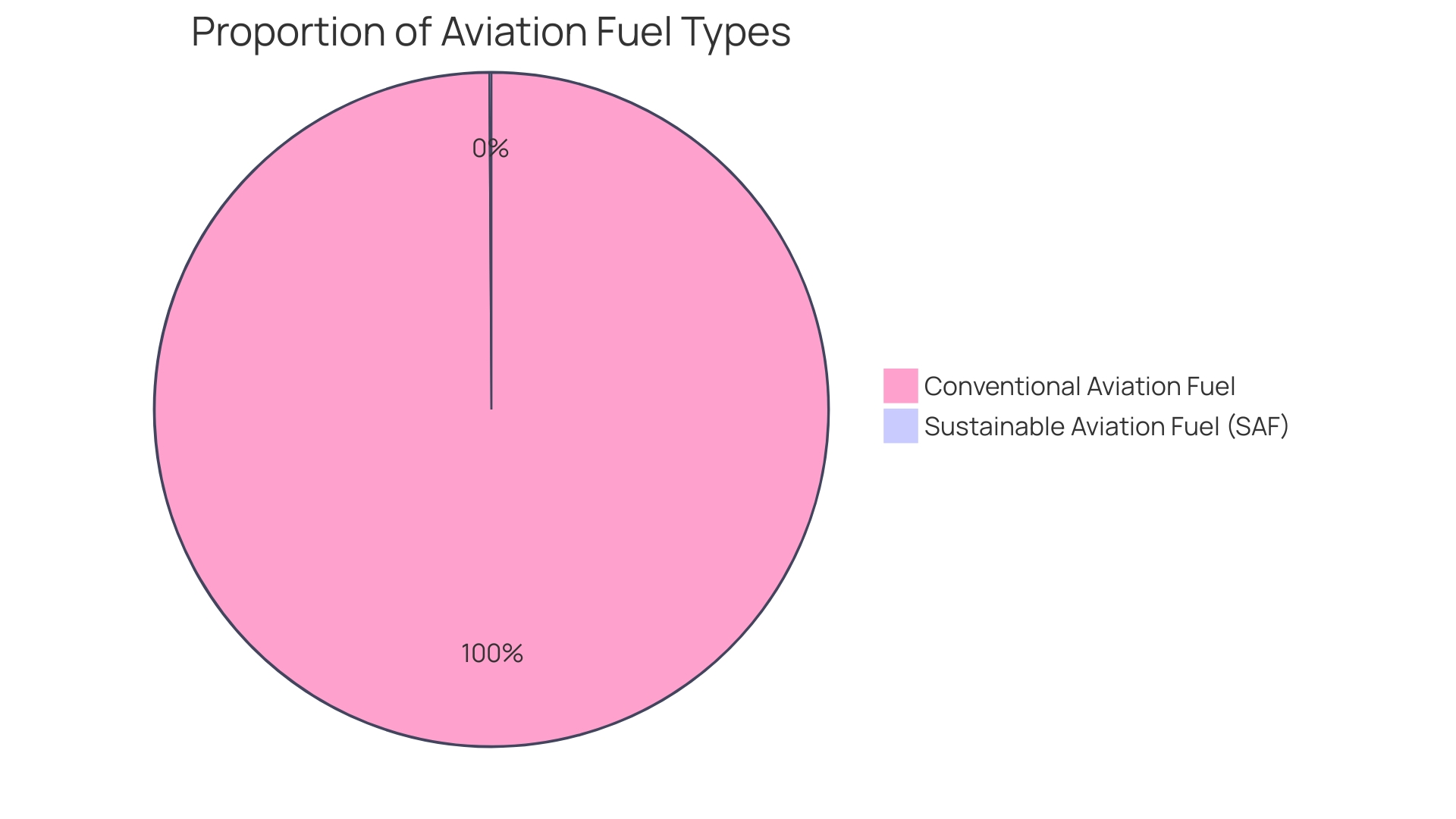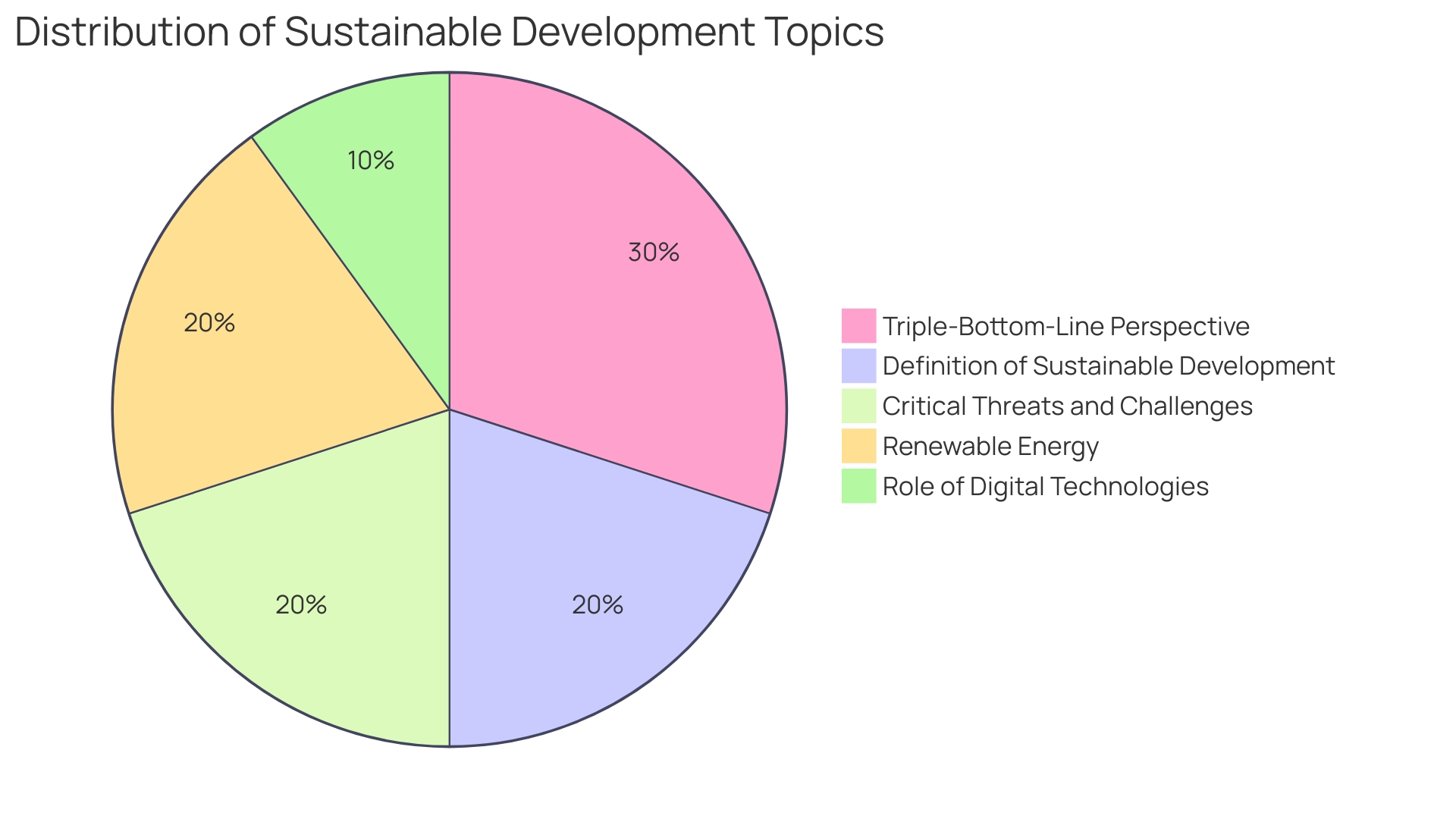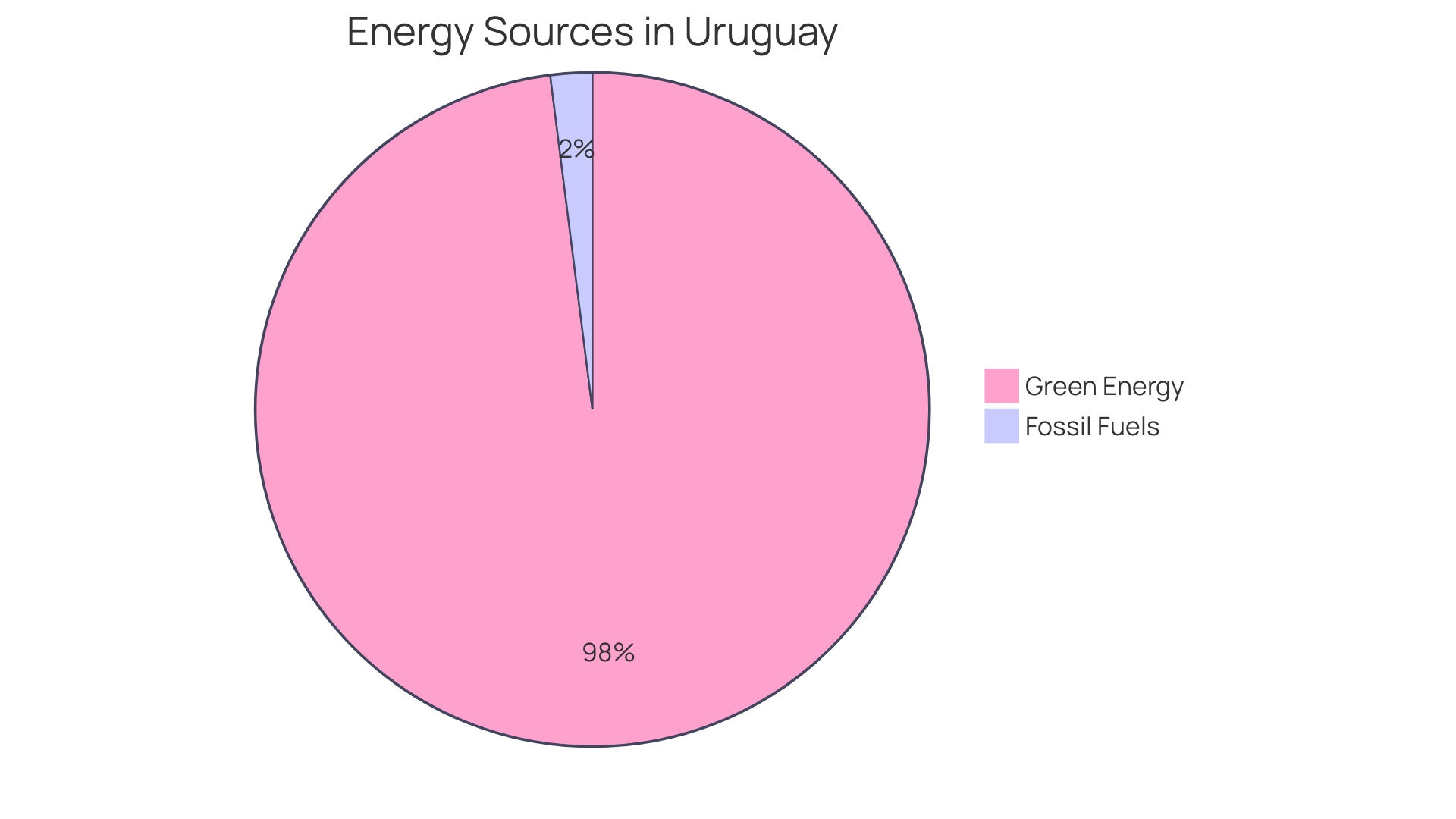Introduction
The drive to decarbonize the aviation industry and reduce greenhouse gas emissions is gaining momentum, with sustainable aviation fuels (SAF) playing a crucial role. Alder Fuels, a leading player in this transformative shift, is leveraging its expertise in the forestry industry to develop SAF solutions that promise significant reductions in emissions. With seasoned professionals and strategic partnerships, Alder Fuels is at the forefront of sustainable fuel development, highlighting the urgent need to address global warming and climate change in the aviation sector.
The potential impact of SAF on aviation is underscored by partnerships between industry giants like Airbus and Neste, as well as Germany's commitment to establishing production capacities for SAF based on green hydrogen. Efforts by companies like the Royal Schiphol Group and Stuttgart Airport further emphasize the critical role of SAF in decarbonizing aviation and enabling sustainable travel.
Despite the challenges, the aviation industry is poised for a greener future, with SAF's potential to reduce carbon intensity by over 80%. Alder Fuels' commitment to sustainable aviation fuel solutions is driving progress in the industry's decarbonization efforts, contributing to a more sustainable aviation sector for generations to come. As the industry continues to evolve, Alder Fuels and other pioneers are leading the way in powering a greener world through renewable energy adoption.
The Importance of Sustainable Aviation Fuel in Decarbonizing Aviation
The drive to decarbonize the aviation industry is rapidly gaining momentum, underscored by innovative efforts to develop and utilize sustainable aviation fuels (SAF). Among the key players in this transformative shift is Alder Fuels, a company leveraging its expertise in the forestry industry to create SAF solutions that promise substantial reductions in greenhouse gas emissions.
Drawing on the knowledge of seasoned professionals like Brian, with his extensive background in forestry procurement and supply chain management, Alder Fuels is positioned at the forefront of sustainable fuel development. The company's approach is deeply informed by the insights of experts like Alyssa, whose decade-long experience in energy conservation projects underscores the strategic importance of stakeholder engagement and policy in fostering sustainable energy transitions.
The potential impact of SAF on the aviation sector is highlighted by the pioneering partnership between Airbus and Neste, underscoring the urgency of addressing global warming and climate change. Notably, Germany's commitment to establishing production capacities for SAF based on green hydrogen (eSAF) signals a significant step towards making aviation climate-neutral by mid-21st century. This initiative not only showcases Germany's leadership in innovative technologies but also emphasizes the critical role of SAF in reducing aviation's CO2 emissions.
Moreover, the Royal Schiphol Group's involvement in hydrogen aviation initiatives, including the GOLIAT project, exemplifies the multifaceted efforts required to integrate new energy carriers like hydrogen into the aviation industry. With Stuttgart Airport's CEO, Ulrich Heppe, recognizing hydrogen's central role in decarbonizing aviation, there is a collective acknowledgment of the opportunities that lie ahead for enabling sustainable travel.
Despite the challenges, the aviation industry is poised for a greener future, with notable milestones like the first transatlantic flight powered by fat and sugar providing a glimpse into a future where alternative fuels replace petroleum. While Saf's current usage represents less than 0.1% of global aviation fuel, its potential for reducing carbon intensity by over 80% is a testament to its pivotal role in the journey towards net-zero emissions.
In conclusion, Alder Fuels' commitment to sustainable aviation fuel solutions is a beacon of progress in the industry's decarbonization efforts. By harnessing the collective expertise of industry veterans and the power of strategic partnerships, the company is not only advancing the technological frontier but also contributing to a more sustainable aviation sector for generations to come.
Alder Fuels' Technology: Advanced Pyrolysis and Greencrude
Harnessing the power of advanced pyrolysis technology, Alder Fuels transforms biomass and waste into renewable fuel, a process that is reshaping the biofuel landscape. Pyrolysis involves heating these materials to high temperatures in an oxygen-deprived environment, breaking them down into smaller molecules. This innovative approach not only supports the integration of biofuels with other renewable energy sources like solar and wind but also aligns with the global shift towards sustainable energy practices.
The significance of Alder Fuels' greencrude production is underscored by experts with deep industry roots. Leaders like Brian, with his extensive background in forestry and supply chain management, and Ric, who has spearheaded numerous renewable power projects, recognize the potential of such technologies in revolutionizing the energy sector. Their insights, along with those from Alyssa's experience in energy conservation, highlight the strategic importance of biofuels in diversifying energy sources and ensuring a consistent energy supply.
Given the urgent need for a 'dramatic transformation' of our energy systems, as emphasized by the International Energy Agency, Alder Fuels' method stands out as a crucial step towards a net-zero future. The compatibility of BIOTERRAN Biofuels with existing infrastructure further enhances this potential, providing a reliable backup for intermittent renewable sources.
In Europe, the biofuel market is rapidly expanding, with ethanol, biodiesel, and renewable diesel leading the charge. The region's proactive policies have catalyzed growth, with ethanol production alone expected to reach 110 billion liters by 2020. This growth is reflective of a broader global trend, where the ethanol market has surged by approximately 33% over the past decade.
Such statistics not only validate the feasibility of biofuel technologies but also highlight their increasing importance in the global energy mix.
Alder Fuels' groundbreaking work, fueled by research and expertise from individuals like Professor Andrzej Vogt from the University of Wroclaw, is more than just a technical achievement—it's a beacon for the future of renewable energy. As the industry continues to evolve, Alder Fuels' contributions to sustainable fuel production are poised to play an integral role in powering a greener world.

Feedstock Utilization: Biomass, Waste, and Sustainable Resources
Harnessing the power of sustainable resources, Alder Fuels is at the forefront of transforming biomass and waste into renewable energy. One of the most tangible examples of this commitment is the utilization of agricultural waste, which not only reduces environmental impact but also enhances the efficiency of the agricultural supply chain. EcoCeres CEO Philip Siu underscores the staggering scale of the problem, with approximately 1.2 billion tons of farm produce wasted annually.
This waste not only represents a loss of valuable resources but also contributes to environmental degradation, considering the energy, water, and fertilizers expended in crop production.
In the broader scope of renewable energy, wood retains its historical significance as humanity's inaugural fuel. Its advantages—being a stable, easily ignitable, and storable solid—remain relevant as we pivot towards cleaner energy solutions. The push for material efficiency is also gaining momentum.
Strategies aimed at reducing CO2 emissions throughout value chains are pivotal, as outlined in critical policy actions that include life-cycle impact consideration in regulations and the promotion of repurposing, reuse, and recycling at the end of product lifetimes.
Current renewable energy trends suggest an increasing shift towards innovative solutions like floating solar farms to address land scarcity, particularly in Southeast Asia, showcasing the dynamic evolution of the sector. As we progress, the investment in renewable energy continues to climb, reflecting a collective commitment to a sustainable future. The renewable sector's financial momentum is captured through investments amounting to millions of USD over the past decade, highlighting the growing capacity of renewable power installations worldwide.
Partnerships and Collaborations: NREL, United Airlines, and Other Key Players
As the aviation industry seeks to reduce its carbon footprint, strategic partnerships like the one between Alder Fuels and the National Renewable Energy Laboratory (NREL) exemplify the collaborative effort required to advance renewable fuels. These collaborations are at the forefront of propelling sustainable aviation fuel (SAF) into mainstream use. SAF is an energy-dense, renewable fuel that must be demonstrated to be as reliable as conventional jet fuel while being fully compatible with existing jet engines.
This is critical for an industry historically reliant on a fuel type that has seen little change since the 1950s.
NREL is instrumental in transforming energy through pivotal research, development, and deployment of renewable energy and energy efficiency technologies. United Airlines, recognizing the urgency to decarbonize aviation—a sector responsible for approximately 7% of U.S. transportation emissions—has also entered into partnerships to bolster the use of SAF. The airline industry, with aircraft that operate for decades, cannot wait for new technologies like electric-powered airplanes to mature; the immediate decarbonization path lies in the adoption of SAF.
Currently, SAF has the potential to reduce the carbon intensity of aviation fuel by over 80% compared to fossil fuels and is compatible with today's aircraft. Despite this, SAF makes up less than 0.1% of global aviation fuel, hindered by supply, demand, and cost issues. Furthermore, the industry must contend with non-CO2 impacts of aviation, such as contrail cirrus formations, which have significant warming effects, possibly exceeding the impact of CO2 emissions from air travel.
In addressing the transition to clean energy, Fatih Birol of the International Energy Agency stated, "No energy company will be unaffected by clean energy transitions. Every part of the industry needs to consider how to respond. Doing nothing is simply not an option."
This sentiment underscores the necessity for traditional energy sectors to reinvent themselves as part of the solution rather than the problem, particularly as global energy demands escalate.
United Airlines and NREL's alliance with Alder Fuels underscores a collective commitment to overcoming these challenges and ensuring that the aviation industry meets the rising demand for energy while transitioning to more sustainable practices. Their efforts exemplify how public and private investments are synergizing to accelerate the production and use of SAF, positioning it as a crucial component for the future of aviation. This partnership not only advances the commercialization of SAF but also fosters the kind of industry innovation that will be essential for meeting environmental goals and sustaining long-term growth in the sector.

Scaling SAF Production: Challenges and Opportunities
Alder Fuels is navigating the complex landscape of sustainable aviation fuel (SAF) production, striving to augment their capacity amidst the burgeoning demand for renewable energy solutions. The aviation sector, while contributing to global carbon emissions, is progressively pivoting towards SAF to achieve a greener footprint. Notably, a transatlantic flight powered by fats and sugars has already illustrated the potential for SAF in mainstream aviation, marking a significant step towards net-zero emissions.
SAF's production is meticulously scrutinized for sustainability, with suppliers undergoing regular audits to comply with strict standards, such as Neste's Supplier Code of Conduct and Responsible Sourcing Principle. Producing SAF involves transforming raw materials like fats, sugars, and even waste into fuel capable of powering existing jet engines without increasing atmospheric CO2 levels. This process, while technologically feasible, faces hurdles in scaling up to meet the colossal global demand efficiently and cost-effectively.
The acceleration of SAF production is pivotal, given the US aviation sector's contribution of approximately 7% to the nation's transportation emissions, a figure anticipated to climb with increasing air travel and freight transport. Traditional means of decarbonization, such as aircraft design improvements or electrification, may fall short in addressing the urgency of emissions reduction, especially considering the long operational lifespan of commercial aircraft.
Amidst these challenges, Alder Fuels is poised to capitalize on opportunities for expansion. The industry's growth is supported by robust investments in renewable energy, as evidenced by data showing a 51% increase in US solar industry capacity in 2023. With a global lens, the renewable sector's investment data reveals sustained financial commitment to eco-friendly energy sources.
Alder Fuels and other pioneers in the SAF market are thus at the forefront of a transformative era in aviation. The integration of SAF into airline operations not only aligns with environmental objectives but also resonates with the growing consumer demand for sustainable travel, as seen in Virgin Atlantic's continuous efforts to innovate within this space. As Alder Fuels scales up, the journey towards 'guilt-free' flying becomes ever more tangible, promising a future where flights are powered by renewable energy, aligning with global sustainability targets.
Environmental Impact: Reduction in GHG Emissions and Carbon Footprint
Alder Fuels' approach to sustainable energy solutions is a beacon of innovation, mirroring the success of similar initiatives in the renewable energy sector. For instance, the collaborative project between Fertiberia and Heineken Spain exemplifies the strides being made in reducing the carbon footprint of industrial processes. By transitioning from natural gas to green hydrogen for the production of low-carbon fertilizers, this venture has made significant environmental headway, much like Alder Fuels’ efforts in the renewable fuels domain.
In parallel, such sustainable practices are bolstered by the adoption of agriculture 4.0 technologies, leveraging big data to optimize application methods. This technological synergy advances the precision and impact of environmentally conscious initiatives.
The progress in renewable energy utilization is further illustrated by recent groundbreaking achievements, such as the first transatlantic flight powered solely by alternative fuels. This venture, supported by Virgin Atlantic, showcases the potential for renewable fuels to transform the aviation industry, aligning with Alder Fuels’ mission to mitigate climate change through renewable energy adoption.
Moreover, industry leaders like ArcelorMittal are integrating renewable energy infrastructure into their operations, signifying a broader commitment to sustainability across various sectors. These efforts are complemented by seasoned professionals like Ric, with over 40 years of experience in renewable energy development, underscoring the depth of expertise driving the transition to cleaner energy sources.
The reduction in greenhouse gas emissions from such initiatives is not only a testament to their environmental benefits but also an indication of the growing viability and cost-competitiveness of renewable energy solutions. As solar and wind power become increasingly affordable, they play a crucial role in ensuring energy equity and supporting public health by providing cleaner air and a safer environment.
These developments collectively highlight the tangible impact of renewable energy projects on reducing carbon footprints and underscore the significance of Alder Fuels’ contributions to a more sustainable future.

Commercial Viability and Market Potential
Exploring the economic landscape of the renewable fuels sector, we find Alder Fuels at the forefront of market innovation. Delving into the market prospects for their cutting-edge technologies and products, we uncover a rich tapestry of growth opportunities that underscore the commercial viability of sustainable energy solutions. The GLOW modeling platform, hailed by energy experts, exemplifies this innovative spirit.
It streamlines the evaluation of new energy resources, enhancing the grid's reliability and sustainability, a critical advantage in today's fast-paced energy market.
The implementation of Distributed Energy Resources (DERs) in California points to a burgeoning trend of localized energy generation and storage, with solar projects nearing the two million mark. Such advancements signal a shift towards a more decentralized energy grid, where the optimization and monetization of these resources are central to the state's energy strategy.
In the broader context, the global energy sector is undergoing a transformation, with companies like BP Inc. setting ambitious net-zero targets and the shipping industry facing challenges to reduce emissions. Meanwhile, the Indian green energy sector is experiencing an investment surge, reflecting a worldwide pivot to cleaner energy sources.
Drawing insights from seasoned professionals like Brian, with his expertise in forestry industry procurement and supply chain operations, and Rice, with his extensive background in renewable power project development, we gain a pragmatic perspective on the industry's trajectory. This is complemented by the academic contributions of Professor Andrzej Vogt, whose research at the University of Wroclaw has pioneered the innovative BIOTERRAN technology.
The historical evolution of renewable technologies, from their inception during the Industrial Revolution to the present-day surge in electric vehicles, showcases a dramatic decrease in production costs and a remarkable increase in deployment. This trajectory is propelled by the integration of IoT devices and AI-powered tools, ensuring a more predictive and efficient energy grid.
The collective thought leadership within the industry affirms that sustainability, growth, and profitability are no longer mutually exclusive pursuits. With the advent of 'Energy as a Service' and other innovative business models, companies are empowered to make transformative energy choices that align with a sustainable and resilient future.
The renewable fuels sector is not just about technology and infrastructure; it's about building a sustainable ecosystem that supports ongoing innovation and economic growth, a vision that Alder Fuels and other industry pioneers are actively realizing.
Policy and Regulatory Support: Government Initiatives and Incentives
Recognizing the crucial role of government initiatives in advancing renewable energy adoption, it's evident that policy frameworks and incentives are key drivers of change. An exemplary model of this dynamic can be seen in Uruguay's approach to leveraging its abundant wind resources. The nation capitalized on its geography to deploy wind turbines extensively, resulting in a staggering 98% of its grid being powered by green energy, with wind energy contributing approximately 40%.
In alignment with global efforts, the U.S. is also setting ambitious targets, aiming for 100% carbon pollution-free electricity by 2035. This commitment is echoed by more than a dozen states and territories with mandates for renewable or non-emitting electricity sources. The distinction between 100% renewable and 100% clean energy targets is crucial, with the former emphasizing sources like wind, solar, and hydropower, and the latter also including non-carbon-emitting resources such as nuclear power.
Vermont, in its quest for sustainable energy solutions, is exploring innovative practices. For instance, the state is considering using biogas to reduce reliance on natural gas for heating the University of Vermont Medical Center. This potential shift is part of a broader strategy that includes enhancing forest management to mitigate the impacts of climate change.
The Inflation Reduction Act (IRA) exemplifies federal support for clean energy transitions, promising jobs, energy security, and climate action. States are encouraged to utilize flexible funding streams for impactful policies, such as the State Energy Program and Greenhouse Gas Reduction Fund, to advance local clean energy economies.
Renewable energy's trajectory is promising, with an anticipated global capacity expansion of 2.4 terawatts by 2027, positioning renewables to surpass coal in electricity generation. Nonetheless, challenges persist, such as the lengthy grid connection process for new projects. Innovative technologies like low-carbon ammonia production offer solutions to these challenges by enabling the utilization of non-grid-connected sources and reducing energy intensity in sectors like agriculture.
As we examine the policy landscape and initiatives that foster renewable energy growth, we can see the intertwined influence of government action, regulatory frameworks, and the deployment of novel technologies. These elements form a virtuous cycle that attracts investment, bolsters energy resilience, and accelerates the transition to a clean energy future.

Future Outlook and Potential for Net-Zero Carbon Flight
The trajectory towards carbon-neutral aviation is not only promising but pivotal, as highlighted by the significant role of Alder Fuels in pioneering this transformation. With aviation accounting for 2% of global greenhouse gas emissions and rising, the imperative to shift to sustainable aviation fuel (SAF) is clear. SAF can slash the carbon intensity of air travel by over 80% and is compatible with existing aircraft, yet it currently comprises less than 0.1% of aviation fuel use.
Financial and logistical hurdles, along with the non-CO2 warming impacts like contrail cirrus formations, add complexity to the transition. Nonetheless, the potential is undeniable, with SAF poised to reduce emissions by up to 60% by 2040 if affordability and supply can be addressed.
Innovation is at the forefront of this journey, with industry collaborations being crucial. The Sustainable Aviation Innovation Challenge, for instance, has brought 16 top innovators into the spotlight, providing them with opportunities to scale their solutions. These innovators are part of a collective mission to reinvent flying, aligning it with net-zero emissions goals and addressing the stark gap between climate knowledge and action, as evidenced at COP 27.
Alder Fuels is contributing to this mission by developing technologies and partnerships that promise to make SAF more accessible and economical. The company's efforts, in conjunction with global initiatives like UpLink and the First Movers Coalition, signify a concerted push towards a future where aviation no longer compromises planetary health. This forward momentum is driven by a shared recognition of the urgency to act and the need for a new approach to reach the Paris Agreement's goals—balancing emissions with removals, with a strong lean towards reduction.
Conclusion
In conclusion, Alder Fuels is a leading force in the decarbonization of the aviation industry through its sustainable aviation fuel (SAF) solutions. With strategic partnerships and a focus on reducing greenhouse gas emissions, Alder Fuels is driving progress towards a greener future for aviation.
By leveraging their expertise in the forestry industry, Alder Fuels is at the forefront of developing SAF solutions that can significantly reduce carbon intensity. The potential impact of SAF on aviation is immense, with the capability to cut emissions by over 80%. This highlights the urgency of addressing climate change and the importance of SAF in achieving sustainability goals.
Alder Fuels' commitment to sustainable fuel development is evident through their innovative technologies. By transforming biomass and waste into renewable fuel using advanced pyrolysis and greencrude production, they are reshaping the biofuel landscape. This approach aligns with the global shift towards sustainable energy practices and contributes to a more efficient and environmentally friendly aviation sector.
Partnerships with industry giants like Airbus and Neste, as well as Germany's commitment to SAF production based on green hydrogen, demonstrate the collaborative effort required to drive change in aviation. Despite challenges related to supply, demand, cost, and non-CO2 impacts, the aviation industry is poised for a greener future, and Alder Fuels is playing a crucial role in this transition.
Alder Fuels' contributions to reducing greenhouse gas emissions and carbon footprints are significant. Their dedication to sustainable practices and the adoption of diverse feedstocks, such as agricultural waste, further enhance their environmental impact. As the renewable fuels sector continues to evolve, Alder Fuels and other pioneers are driving the industry towards a more sustainable future.
Government initiatives and incentives are key drivers of renewable energy adoption, and Alder Fuels recognizes their importance. Policy frameworks and collaborations with organizations like the National Renewable Energy Laboratory (NREL) and United Airlines are instrumental in advancing SAF and accelerating the transition to a clean energy future.
Looking ahead, achieving net-zero carbon flight is a critical goal. Alder Fuels, along with global initiatives and industry collaborations, is at the forefront of this journey. By developing technologies and partnerships, Alder Fuels is paving the way for a future where aviation no longer compromises the health of our planet.
Balancing emissions with removals and reducing carbon intensity are essential steps in reaching sustainability targets set by the Paris Agreement.




